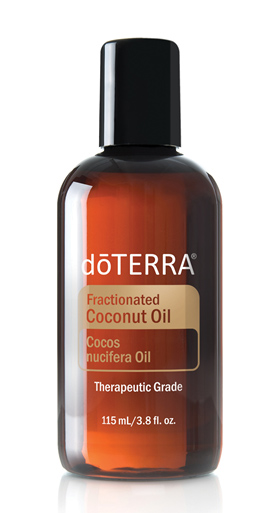While it is easy to use essential oils by adding them to a diffuser, it can also be just as or even more beneficial to use oils topically, depending on the results you want. This is where carrier oils are highly useful.
Carrier oils are vegetable oils with little or no scent that are used to dilute essential oils. They are not volatile like essential oils, and are shelf-stable. In carrying essential oils into your skin, carrier oils dilute the potency of the oil, but this means that they better absorb into your skin because the essential oil does not evaporate as quickly. Dilution is also necessary for certain “hot” essential oils, and always a good idea when using any oils with children or for those with sensitive skin. When in doubt, always dilute.
Which carrier oil is best?
Researching carrier oils can be overwhelming because there are so many different types you can use. Keep in mind however, that it is best to use a carrier oil that is 100 percent pure. This way, the essential oil’s chemical profile is preserved and the oil is easily dissolved.
 Here are some of the best carrier oils:
Here are some of the best carrier oils:
- Fractionated Coconut Oil. Coconut oil is high in antioxidants and Vitamin E. But, the thick, unrefined coconut oil you find in chemists and super markets is not as useful for aromatherapy purposes because it doesn’t readily absorb into the skin. Fractionating coconut oil makes it ideal for aromatherapy. The process of fractionating coconut oil makes the fatty acid chains separate out and produces a liquid consistency. Nothing is added to the oil itself to make it this way. This gives the oil a much longer shelf life and creates an oil that is non-greasy, light, and better for absorption. Fractionated means that the oil stays in its liquid form, rather than solid.
- Almond Oil. Great for all skin types and topical applications, almond oil is absorbed by the skin fairly well. It does have a slightly nutty smell to it, but nothing overwhelming. It is a great oil to use in face care because it helps moisturize. Be aware, however, that it is not for those with nut allergies as it is often produced in the same factories as peanut oil.
- Jojoba Oil. Despite being called an oil, jojoba is actually a liquid wax. Odourless and golden yellow in color, jojoba is another popular carrier oil because it is great for hair and leaves skin hydrated without a lot of heavy shine. It is very similar to the oil that your skin produces naturally, and can be good for oily skin.
- Grapeseed Oil. This oil is high in linoleic acid and is very moisturizing, especially for delicate skin. You’ll often see it listed on the ingredients list of many cosmetics. Its aroma is light and sweet, and it is clear in color. It can be a good carrier oil to use for occasional blemishes.
- Olive Oil. Though it can be heavy, oily, and have a stronger odour when compared to the others, the benefit of olive oil is that it is high in both vitamins and minerals. Depending on the quantity and how diluted you need the essential oil to be, olive oil can overpower the scent.
- Apricot Kernal. Coming from the kernel of the apricot plant, this carrier oil is known for its pale yellow colour. What makes apricot kernel oil so great is that it works well when used with the aging skin and it’s a common ingredient for many cosmetics that can have the price of up to hundreds or even thousands of pounds. This carrier oil is lightweight and smells faintly sweet; it can be absorbed by the skin without leaving a greasy or oily feeling after use.
How and What to Dilute
Once you’ve found your carrier oil of choice, you can then begin to dilute essential oils according to the dilution ratio you need. The following dilution ratios should give you a good idea of how much:
For one teaspoon of carrier oil add:
- 1 drop essential oil for a 1% ratio
- 2 drops for 2%
- 5 drops for 5%
One tablespoon of carrier oil:
- 3 drops essential oil for 1%
- 6 drops for 2%
- 15 drops for 5%
One fluid ounce of carrier oil:
- 6 drops essential oil for 1%
- 12 drops for 2%
- 30 drops for 5%
When it comes to using essential oils topically, doTERRA oils are organized into three specific categories. Neat, Dilute, and Sensitive. Oils that are in the Dilute category are those that are high in constituents that are particularly strong, such as phenols. These are:
- Cassia
- Cinnamon Bark
- Clove
- Oregano
- Thyme
For children and those with sensitive skin, the Sensitive category is especially important to pay attention to. Oils in the Sensitive category include:
- Bergamot
- Black Pepper
- Breathe
- Cedarwood
- Cheer
- Copaiba
- Deep Blue
- Eucalyptus
- Fennel
- Forgive
- Geranium
- Ginger
- Lemongrass
- Lime
- Motivate
- On Guard
- Passion
- Peppermint
- Petitgrain
- Slim & Sassy
- Spearmint
- Wintergreen
The rest of the doTERRA oils are categorized as Neat if they are meant for topical application. If an oil is categorized as Neat, for most people these will not cause sensitivity. However, if you want to be safe when trying an oil for the first time, you can always test it by diluting it in a carrier oil and putting it on a small patch of your skin.





